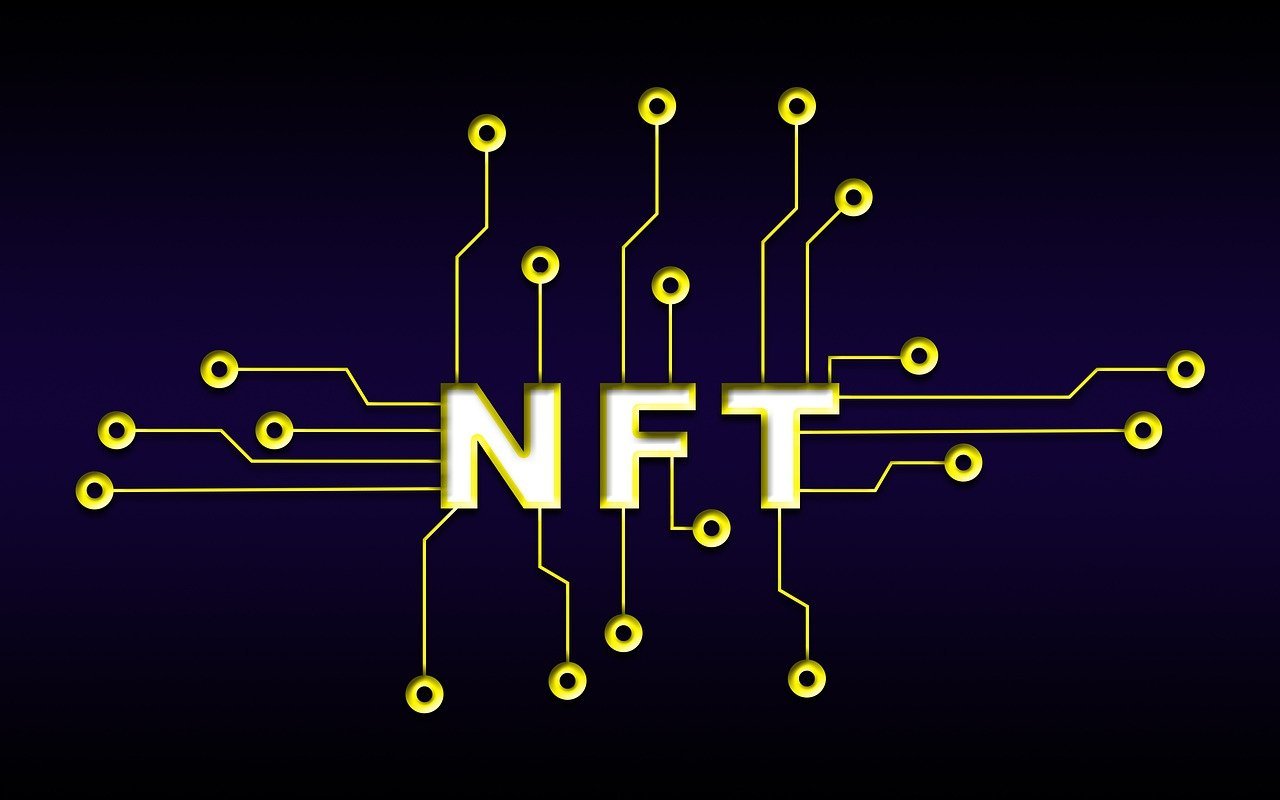Understanding Ethereum Revolutionary Insights
The Remarkable Insights and Key Takeaways on Understanding Ethereum and the Future of Decentralised Finance.
Ethereum is one of the most powerful technologies changing the future of finance. As a blockchain platform with built-in smart contract functionality, Ethereum possesses great potential to transform financial systems through the adoption of smart contracts and dApps. But what does Ethereum mean for the future of decentralised finance (DeFi), and how will it affect global industries? This article considers Ethereum’s role in the financial ecosystem alongside its constituents and advantages of applying Ethereum in DeFi.
Ethereum and Decentralised Finance (DeFi) Overview
What is Ethereum?
Ethereum is a global, open-source computing platform based on blockchain technology enabling developers to create and publish smart contracts and dApps. Founded in 2015 by Vitalik Buterin et al, Ethereum has broadened the scope of possibilities beyond cryptocurrency transactions to include everything else Bitcoin enabled. Users on Ethereum can now automate contract executions without the need for intermediaries, which provides a higher degree of freedom to implement decentralised financial systems.
What is Decentralised Finance (DeFi)?
The term Decentralised Finance (DeFi) distinguishes financial activity or functionality within completely self-governing and self-regulated frameworks or financial systems with no central authority. The role of middlemen and auxiliary parties like banks, brokers, and other institutions are cut out. Users can lend, borrow, trade, and acquire insurance, all through separate and independent systems. It is a significant indication of emerging and evolving P2P finance where individuals are in control of their resources and finances without necessarily transferring control to centralised organisations.
How Ethereum Powers Decentralised Finance
Decentralised Finance is one of the most popular and growing trends in various blockchains and Ethereum is at its forefront along with its unique […] tokens, possessing literally unlimited value.
Ethereum’s Smart Contracts: The Heart of DeFi
A smart contract is a self-executing contract with the agreement covered within a code. While unparalleled services of Ethereum allow to possess precise auditable chains, its smart contracts are the heart of the DeFi sector, being the ones which allow automatic secured and public, beyond controlled, execution of less sophisticated financial operations. No need for banks, solicitors and other trusted mediators to facilitate trusts. Costs are reduced and efficiency elevated immensely.
Ethereum’s Blockchain Technology: Transparency and Security
As a blockchain ledger, Ethereum records transactions on a global scale, within a framework that is both secure and accessible to users. Transparency is one of the defining features of Ethereum, as every user has the capability of checking transactions as they occur. This makes Ethereum users feel secure while using the platform. Because Ethereum is decentralised, no individual has complete authority over the network, which makes it more secure against fraud and censorship.
Benefits of Using Ethereum in DeFi
Financial Inclusion and Accessibility
Ethereum enables users with an internet connection, regardless of their socioeconomic status or geographic region, to gain access to DeFi services. This is especially beneficial to sections of the population that are often neglected by conventional banking services, particularly those in emerging economies. By overcoming existing barriers, Ethereum provides people greater control over their finances.
Lower Transaction Costs
Ethereum’s blockchain dramatically decreases transaction fees for every user and business, especially in relation to traditional finance systems that are extremely expensive and charge exorbitant fees for cross-border transactions. The elimination of intermediaries significantly decreases the cost of transactions, making economic interactions easier and more effective. This greatly contributes to smoother capital movement.
Improved Transparency and Security
Once transactions are posted on the Ethereum blockchain, they cannot be changed which guarantees their credibility as well as transparency throughout the process. Adding additional layers of encryption protects and secures Ethereum’s network from fraudulent and hacking attempts.

Effects of Ethereum on the International Economy
Deconstructing Banking Institutions Through Ethereum
Through Ethereum, financial services become accessible without the need for central financial institutions. DeFi platforms that are built on Ethereum facilitate faster as well as less expensive and more secure transactions, competing with traditional banking services such as loans, mortgages, and savings accounts.
Ethereum’s Expanding Influence on Global Payments
The global remittance and payment services market is also witnessing the influence of Ethereum. Payments made across borders with Ethereum’s blockchain are economically favourable, quicker, and more transparent compared to traditional ways like wire transfers or Western Union. The adoption of the Ethereum Ecosystem is aiding the development of financial systems globally by enabling speedier and advanced international monetary exchanges.
Decoding the Terms of Tokens on Ethereum
ERC-20: The Gold Standard for Fungible Tokens
ERC-20 is the most frequently adopted token standard of the Ethereum blockchain accounting for peg-able tokens that can be easily swapped. This standard guarantees inter-token operability and is typically applied in the issuance of digital currencies, utility tokens, and other financial derivatives within the DeFi economy.
ERC-721: Changing the Game of Digital Collectibles
The ERC-721 standard handles the minting of Non-fungible Tokens (NFTs), which are unique and distinct. As a means of monetising art, collectibles, and digital assets, NFTs have captured much attention of late. The value of these tokens lies in the unique underlying item or asset which they represent, especially within the scope of DeFi and the wider digital economy.
Ethereum and Scaling Difficulties
The Present Day Scalability Problems of Ethereum
Scalability is one of the issues that Ethereum confronts. The network may suffer from congestion, especially during high-demand seasons, causing delays in transaction execution and increases in costs. As the popularity of Ethereum rises, dealing with scalability becomes a paramount problem.
Solutions: Ethereum 2.0 and Layer 2 Scaling Solutions
The upgrade of the existing Ethereum network, Ethereum 2.0, aims to resolve scalability challenges by shifting from a Proof of Work (PoW) consensus approach to a Proof of Stake (PoS) based method. This change is likely to enhance the speed of transactions and reduce their costs significantly. Other Layer 2 solutions such as Optimistic Rollups and zk-Rollups also seek to further scale the Ethereum network.
Ethereum’s Impact on the Future of Finance
How Ethereum is Shaping the Future of Digital Assets
Ethereum being at the centre of the digital assets revolution can now permit, through decentralised finance, the development and trading of digital assets without the requirements of a central authority or intermediaries. This radical shift will change the approach to wealth and ownership whilst creating safer, more open, and affordable financial systems.
Future Trends and Innovations in Ethereum
As Ethereum continues to evolve, we can expect further innovations in the DeFi space. In addition, the continuous development of novel DeFi protocols, the rise of Ethereum-based financial products, and the amalgamation of Ethereum with other blockchains will contribute positively to the global financial system integration.
Common Challenges and Risks in Ethereum
Smart Contract Vulnerability
Although smart contracts on Ethereum offer a wide array of advantages, they are also susceptible to threats. The presence of bugs or vulnerabilities within the code can result in negative outcomes, like funds being lost or security compromised. As Ethereum and the wider Decentralised Finance (DeFi) ecosystem develops, safeguarding the security of smart contracts will remain a challenge.
Ethical and Legal Challenges
One of the most profound difficulties for Ethereum and DeFi is the ambiguity of global regulations, which is often the worst. Globally, governments are still trying to figure out how to control the use of blockchain technology, and policy divergence with respect to regulation can shift Ethereum’s adoption along with associated projects.
Common Questions for Ethereum and DeFi
What is Ethereum Primarily Used For
Ethereum is used to build and run decentralised applications (dApps) and smart contracts, as well as enable users to send and receive funds through other DeFi services.
Is Ethereum Safe for DeFi?
Aside from vulnerability to smart contracts and lack of definite regulations, Ethereum remains secure since it is almost totally decentralised, coupled with encryption.
What features differentiate Ethereum from Bitcoin?
As cryptocurrencies, Bitcoin and Ethereum are both digital currencies however, Bitcoin serves best as a value reserve and a currency, whereas Ethereum is used as a marketplace for decentralised applications and smart contracts.
How do I engage with DeFi on Ethereum?
Engagement with DeFi on Ethereum requires an Ethereum wallet and ETH. Once you have those, you can access various DeFi platforms to lend, borrow, or trade your crypto assets.
What does Ethereum 2.0 do?
Ethereum 2.0 improves network performance by shifting Ethereum consensus from Proof of Work (PoW) to Proof of Stake (PoS). This shift is expected to enhance scalability and reduce energy usage.
Will Ethereum become the key player in finance?
Ethereum’s rapid adoption coupled with its unique offering in decentralised finance indicates that Ethereum could greatly impact the future of global finance by providing quicker, reliable and cheaper financial services.
Conclusion: Ethereum Underpins Decentralised Finance (DeFi)
It is crystal clear that Ethereum is affecting financial transactions in the world today. As a base of DeFi, Ethereum is making it possible to construct a superior financial system that is accessible, transparent, and more efficient. While there are still obstacles to overcome such as scalability and lack of proper regulation, Ethereum has proven time and time again that it is improving and leading the charge for the future of decentralised finances. In the transition to a less centralised world, Ethereum most assuredly leads the pack on the pending monetary revolution.



